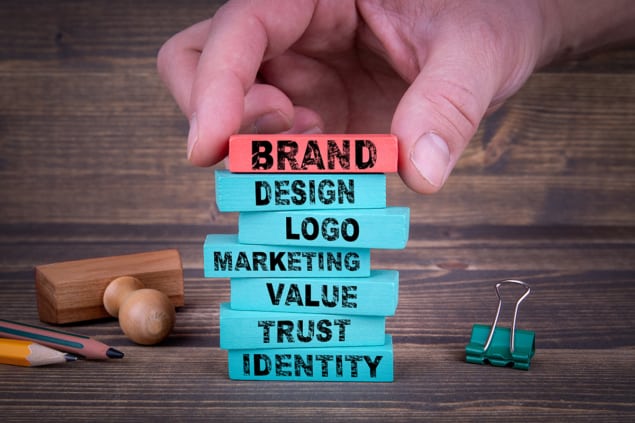James McKenzie reflects on his recent experience of naming companies and explores what a minefield it is and (apparently) always has been

A funny thing happened the other day when some colleagues and I tried to come up with a name for a new venture. Although everyone was on board with the idea behind the company, its business model, and all the other important stuff, getting everyone to agree on what to call it was surprisingly challenging.
Part of the problem is that technical people tend to treat the company’s name as part of product development. The name, they argue, needs to describe the business or technology involved. My response is, okay, fine – but what if we later need to change direction?
The company now known as IBM is a case in point. Founded in 1911 through a merger of the Tabulating Machine Company, the International Time Recording Company and the Computing Scale Company, the Computing-Tabulating-Recording Company simplified its name (thank goodness) to International Business Machines in 1924. Its later abbreviation to IBM was an important step, since the firm now does much more than any of its original names imply.
For me, a business’s name doesn’t matter too much if it fulfils a few basic criteria – though marketing professionals may disagree. First, it must not be trademarked by others. It must be available both at Companies House (or the equivalent outside the UK) and as a URL for a website, ideally for a reasonable price. It’s also best to make sure that online searches don’t turn up anything undesirable, either in English or, if you’re aiming to build a global brand, in the language(s) of your target markets. This can be tricky. Even if you diligently check the translations, you can inadvertently get it wrong. Toyota didn’t sell many MR2s in France, and if you pronounce the name in French, you’ll understand why.
If you are trying to hide your company’s true intentions, you may find the story of Mitel inspiring
Sometimes, though, other factors come into play. If you are trying to hide your company’s true intentions, you may find the story of Mitel inspiring. Michael Cowpland and Terry Matthews started it in 1973 with the blessing of their employer – a Canadian telecoms firm – on the understanding that they would sell lawnmowers. The name Mitel reflects both the founders’ first names and their supposed first product: MIke and TErry Lawnmowers. Alas, their first shipment of three lawnmowers was “lost in transit”, so they pivoted to making a tone-to-pulse converter for office phones, drawing on ideas in Cowpland’s PhD thesis.
In some sectors, it is popular for the company’s name to take the underlying technology as a starting point. I have lost count of the number of quantum-tech companies with names that begin with the letter Q and derive from some aspect of quantum physics. Similarly, optics and photonics companies named opto-something or photo-something are pretty common. Adopting these conventions can make it hard for you stand out from the competition, but on the other hand, you also won’t get calls from people asking you to clean windows.
Another time-honoured naming tradition is to let your ego take over and name your company after yourself. The founders of Edison Electric, Bell Telephone, Marks and Spencer, and McDonalds all succumbed to this temptation, with great success. But again, there are pitfalls. In the town where I grew up, a man called Stuart Hall founded a travel agency. Unfortunately, the signage for Stuart Hall International Travel attracted all the wrong kind of attention, and it was changed very quickly. Presumably, the (possibly apocryphal) building firm STD Contractors met a similar fate.
Another time-honoured naming tradition is to let your ego take over and name your company after yourself
Technology business founders are usually serious people, which at some level rules out jokey names like Julius Scissor (a hairdresser’s), Lawn ‘n’ Order (a landscaping company), Codfather and For Cod’s Sake (fish and chip shops) or Luke Floor Walker (a flooring company run by a friend of mine). Then again, Elon Musk owns a tunnelling firm called The Boring Company, which is memorable, descriptive and a little tongue-in-cheek, too. The same could be said for an LED lighting firm called Big Ass Light – a spin-off from a fan manufacturer called (what else?) Big Ass Fans.
From humble beginnings
Still, if you don’t get the name quite right, you can always change it. In 1996 Larry Page and Serge Brin created a search engine called BackRub, then changed it to Google two years later. The newer name is a play on the word “googol”, denoting the number 1 followed by 100 zeroes, and it reflects Page and Brin’s mission to organize the staggeringly large amount of information available on the Web. Another early search engine, created by Jerry Yang and David Filo while they were PhD students at Stanford University, was initially called Jerry’s Guide. It was soon renamed Yahoo!, which apparently stands for “Yet Another Hierarchical Officious Oracle” – although no-one really needed to know this, as the name itself was memorable, unique and easy to spell.
In my view, though, no company has done a better job of renaming itself in recent years than LG. The company was called Lucky-Goldstar when it formed in 1958, and it traded under that name until it rebranded as LG in 1995. The accompanying tagline “Life’s Good” was simple, emotive and even a bit American-sounding – giving the company a wholly different feel from the South Korean firm known, in the UK at least, for selling bargain-basement TVs and radios in the 1980s.
In my view, though, no company has done a better job of renaming itself in recent years than LG
In short, company names are tough. It isn’t worth spending too much time picking one, because there are more challenging and important matters at hand (like running the actual business). Even so, you should spend enough time on it to save yourself from embarrassment – or else be prepared to spend more time later changing it and moving on.




